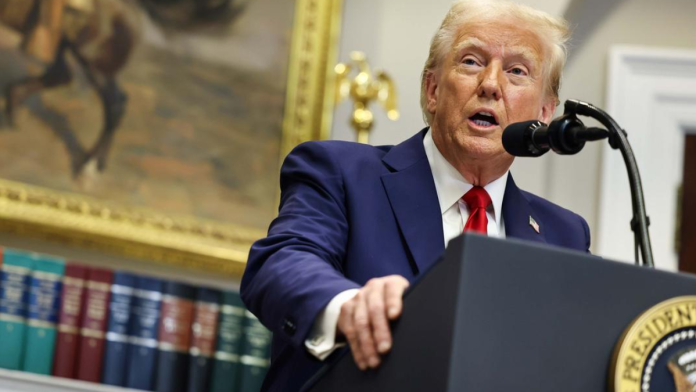In a dramatic move, President Donald Trump has announced massive sanctions on Russia’s two biggest oil companies, marking his government’s toughest action against Moscow since returning to office. The sanctions, targeting Rosneft and Lukoil, are seen as a sharp response to Russia’s continued aggression in Ukraine.
For months, Trump’s administration had tried to persuade Russia through talks and incentives. But after repeated refusals from Moscow to compromise, patience in Washington appears to have run out.
Trump’s decision came just a week after he backed away from providing long-range missiles to Ukraine following a phone call with the Russian president. That conversation reportedly left many believing that Trump was still willing to negotiate. However, Wednesday’s announcement proved otherwise.
The sanctions are designed to freeze the assets of Rosneft and Lukoil in the United States and to ban American entities from doing business with them. Experts say this move is far more serious than earlier sanctions, which had avoided targeting such large players for fear of global oil disruptions.
Coordinated global pressure builds
This latest step by Washington comes as Western allies also tighten their stance against Moscow. The United Kingdom expanded its sanctions list earlier this month to include the same Russian oil companies. On the same day as Trump’s move, the European Union approved its 19th sanctions package, which includes a full transaction ban on Rosneft.
These coordinated actions mark a rare moment of unity between the United States and Europe in Trump’s second term. Officials in Brussels called it a “clear signal” that collective pressure on Russia will continue.
UK targets Russian oil giants and Nayara Energy in new sanctions aimed at cutting Kremlin revenue
Meanwhile, experts say Russia is already facing mounting economic challenges. Its energy revenues have dropped by about 20 per cent this year, partly due to ongoing Ukrainian drone attacks on oil facilities. Moscow has been trying to fill the financial gap by raising taxes and expanding oil sales to Asian markets.
Still, the sanctions’ immediate impact on Russia’s economy remains unclear. While the stocks of Rosneft and Lukoil dipped after the announcement, they did not collapse. The Russian currency, the ruble, has also remained relatively stable for now.
Challenges in enforcement
Analysts believe that Russia has already built secretive trading systems and “shadow fleets” to keep its oil moving around the world. Much of this trade happens through partners in India, China, and the Middle East, which makes the job of enforcement extremely difficult.
Energy experts warn that while sanctions look strong on paper, their success depends entirely on how determined the US is to chase down the loopholes. Russia’s long experience in evading restrictions could allow it to continue exporting oil through alternate routes or by using middlemen.
Global ripple effects
The global economy is now watching how other major oil buyers, especially India, will react to the US sanctions. India is currently one of the biggest importers of Russian crude, buying up to 2 million barrels a day. Reports suggest that some Indian companies may reduce or halt purchases to avoid getting caught in the sanctions net.
If India does scale back imports, it could deal a major blow to Russia’s energy income. Experts note that China is unlikely to absorb all the excess oil that India stops buying, meaning a chunk of Russian crude might leave the market altogether. This could push global oil prices upward, a development that would affect fuel costs worldwide.
For now, US oil prices remain around 25 per cent lower than their January peak, giving Trump some room to act without sparking immediate inflation. But any sustained rise in global prices could offset the effects of sanctions and even provide Russia with unexpected profits from higher market rates.
To prevent this, Washington may pressure oil-producing nations in the OPEC+ group to boost their supply. Whether those countries will cooperate remains to be seen.
Inside Russia, officials have dismissed the sanctions, saying they will not affect the country’s economic stability. Trump’s decision breaks with his earlier pattern of restraint toward Moscow and suggests a firmer stance against Russia’s actions in Ukraine.
The move sends a message not just to Moscow, but also to global markets and American allies — that Washington is ready to flex its economic power, even if the results are still uncertain.


